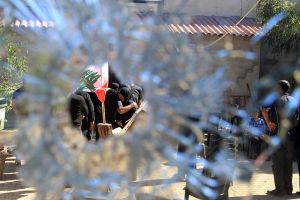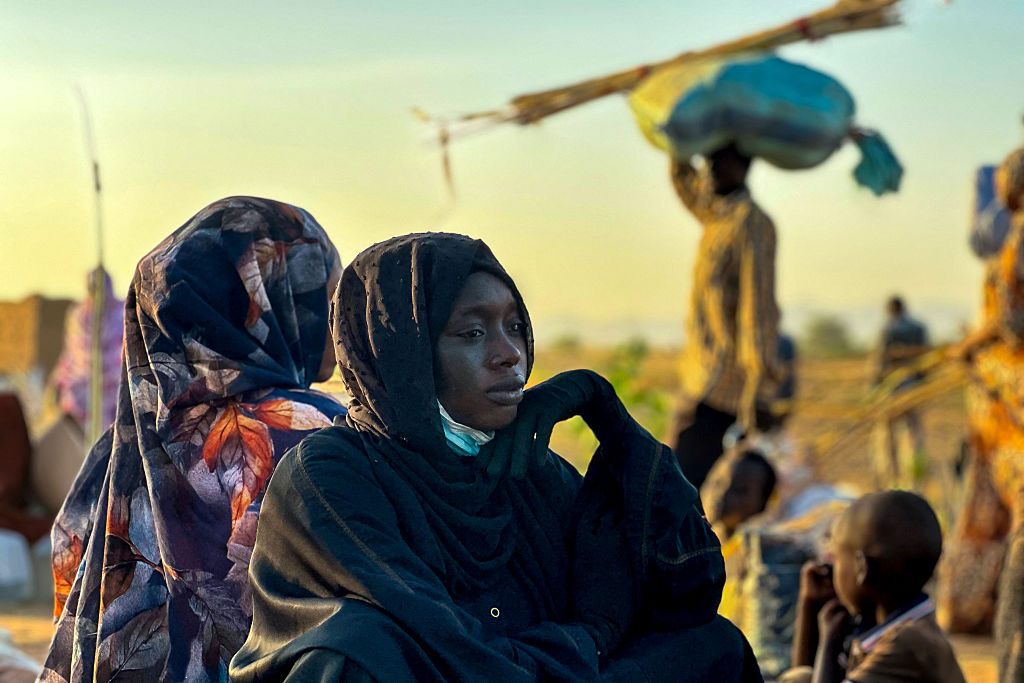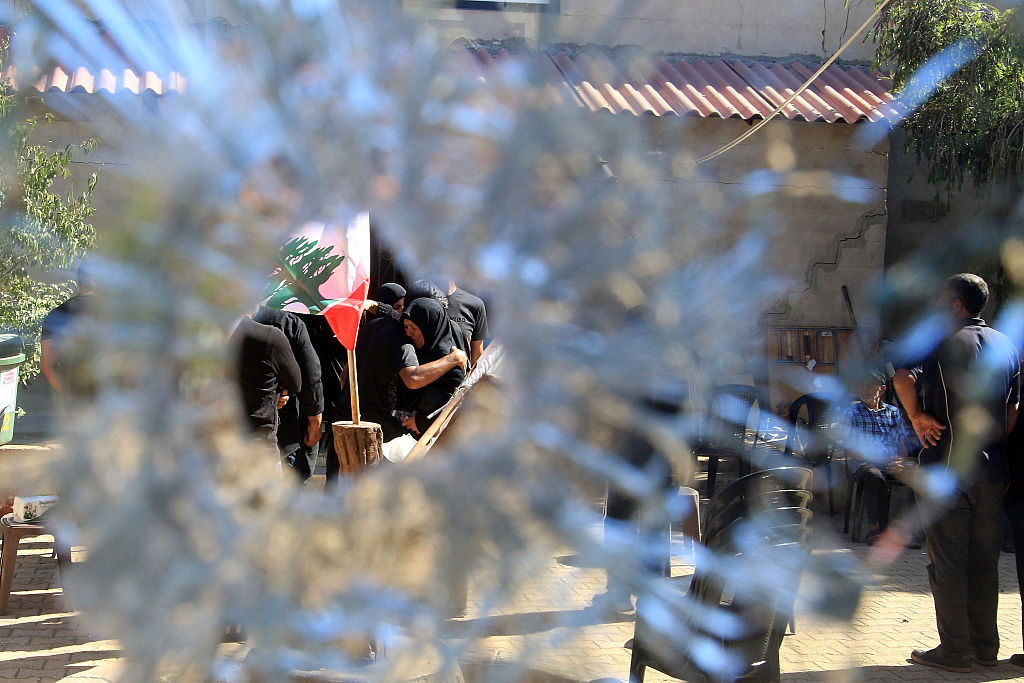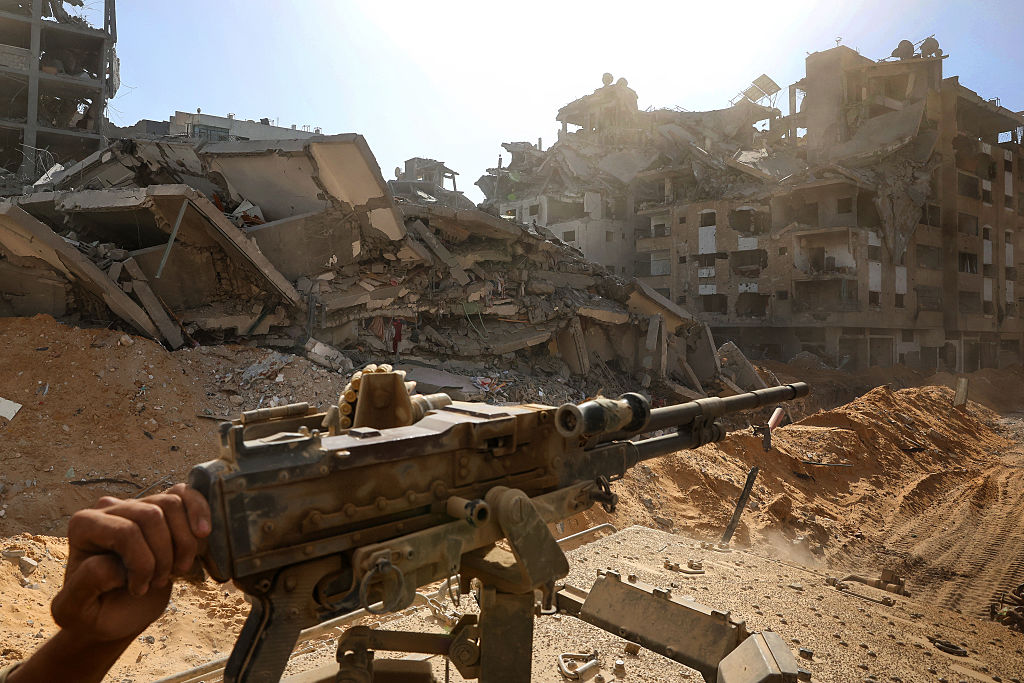According to my phone, I’m in Beirut-Rafic Hariri International Airport. Except I’m not. The Israel Defense Forces have scrambled the GPS of everyone within about an hour’s drive of the Israel-Lebanon border. The same navigation system that tells my iPhone its location is the same navigation system that Hezbollah could use to identify targets in northern Israel. They’ve been firing across the border since October 7, and the Israelis are fed up. They’ve evacuated eighty kibbutzim, nine villages, three community centers and two Arab villages. The phrase that ministers use to describe the displaced is “refugees in their own country.” The offensive in Gaza is winding down, and after that — says an official — “we are ready to deal with Lebanon.”
This week the British embassy advised people to leave Lebanon if they can. Officials sound resigned, prepared, perhaps raring for war on the northern front: “We are talking weeks, maybe days.” I don’t know how literally to take them. As you get farther north, it gets quieter and quieter and the cars all start coming the other way. The evacuated areas — among vineyards and fields where bananas and avocados grow — have become known as “ghost towns.” Out in the field in 90°F heat, I can only hear one thing. Crickets.
Hezbollah has launched more than 10,000 rockets in the past nine months and the Iron Dome has had little trouble intercepting them. The anti-tank missiles are trickier to stop. Sirens can and do go off at any time. I’m with a group of journalists with the Europe Israel Press Association. We’re told to get off the bus, lie down and cover our heads if the sirens go off. On the way to Matzuva, a kibbutz right on the border, the IDF suggests we change destination and go elsewhere. It doesn’t matter that I’m not a soldier: “When Hezbollah see people, they fire at them.”
Hezbollah is a more sophisticated enemy than Hamas — it has closer links with Iran, a giant arsenal of rockets, about 25,000 fighters and 30,000 reservists. But Israeli officials insist that they aren’t scared. “I sleep like a baby,” says a bespectacled IDF lieutenant colonel, who spends his days staring at the Lebanese mountains from a few miles away. If Israel has to turn north, “what’s happened in Gaza will be child’s play.”
In the quiet northern town of Mateh Asher, a fifteen-minute drive from the border, Ishay Efroni never takes his hand off his massive gun. He’s the head of security for the regional council. “He looks scary but he’s sweet,” says the mayor, chuckling. Efroni doesn’t chuckle or smile though. The situation is intolerable, he says, especially for children. “They had Covid for two years, and another year out of school because of Hezbollah.” If they don’t go back on September 1, they’ll miss another year, he adds. In two weeks’ time, Mateh Asher will host a raft-building competition for some of the children who’ve remained. “They have to feel that life is in some way normal.”
Israel is prepared to strike deep into Lebanese territory if Hezbollah don’t stop the attacks. “If a rocket hits Haifa [a city in Israel’s north], then something is going to happen to Beirut,” one official says. “I won’t say they’ll go back to the Stone Age, but there will be a big problem with electricity.” The threat goes the other way too. Israeli research recently concluded that the Iron Dome could be overwhelmed by Hezbollah’s arsenal, and a government electricity official said Israel would become “unlivable” in if the power goes out. But the fear of Hezbollah’s arsenal doesn’t seem to frighten Israeli officials. Zohar Palti, a former head of the Mossad intelligence directorate, admits that Hezbollah could strike some tall buildings in Tel Aviv. “But do you expect us to be paralyzed?” he says.
We visit the kibbutz Nir Oz the next day. A quarter of its residents were killed or kidnapped on October 7. A woman named Irit Lahav meets us. She spent more than seven hours hiding in her safe room that day, saying goodbye to her daughter. Her makeshift lock worked, and she somehow still lives here. We step over shattered glass and enter houses blackened by heat bombs. They stink. We’re a two-minute drive from Gaza, and you can hear, every minute or so, the terrifying, throbbing sound of Israeli cannon-fire. The amount of agony crammed in these few square miles is vast.
Theresa May once said there are “girl jobs” and “boy jobs.” There’s no such thing in Israel. Many of the IDF soldiers I meet are young women, with American-ish accents. One I speak to is fascinated I’m from London. She’s been there a few times: “I want to go back!” I try to convince her that her life is slightly more interesting than mine at the moment. She has family in the UK, but grew up in Israel and was drafted to the IDF last year. She’s just eighteen. She’ll serve for a bit, but after the war is done, she wants to open a restaurant. “I really, really hate war,” she says. “But sometimes the only way to get peace is through force.”
On Tel Aviv beach, soccer-mad crowds gather to watch Italy versus Croatia on a big projector screen. I fall asleep to the sound of people playing beach volleyball and I wake up to the sound of people playing beach volleyball. Most Israelis I talk to sleep well. No one seems ready for the war that everyone expects. But they insist that they are.
This article was originally published in The Spectator’s UK magazine. Subscribe to the World edition here.


























Leave a Reply